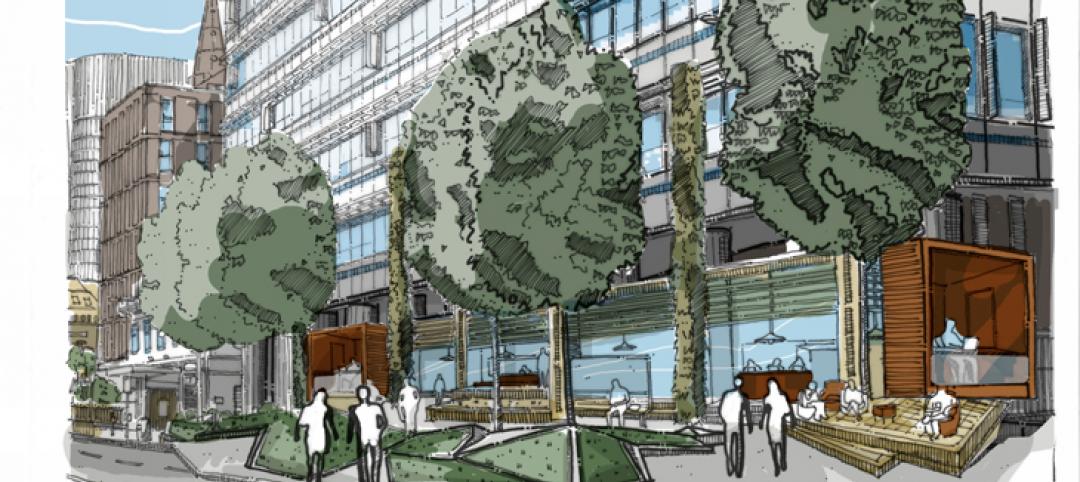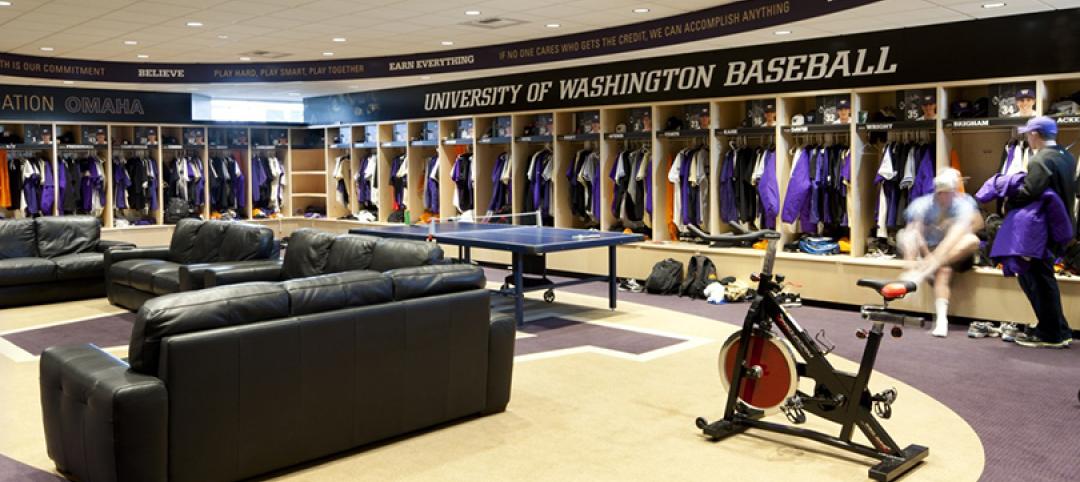Over the past eight years, the general contractor Swinerton went through an up and down growth trajectory that was limited by where it operated and the products it focused on.
In 2018, the company—which dates back to 1888—came out with its March to 2030, a blueprint for future growth that emphasizes product and geographic diversity. Since that plan came to light, the firm has expanded into Texas, Atlanta, Charlotte, and Raleigh. And now, it is making its boldest move by opening its first office in New York City, which Swinerton envisions becoming its hub for the Northeast.
That’s a tall order, given that the company had virtually no presence in that part of the country outside of some work in New Jersey by its renewable energy group. But the COVID-19 pandemic created what Swinerton’s CEO Eric Foster calls “an opportunity in crisis.”
“We feel the need to answer the call to build back better and stronger in post-pandemic New York,” says David Callis, Swinerton’s president and COO.
Running the New York office is Andrew Pearl, a 14-year company veteran who grew up in northern New Jersey but had spent his entire career, until now, with Swinerton in San Diego and San Francisco. “I never intended to stay in California,” Pearl tells BD+C, and he’s been pushing the company to open a branch in New York practically since he joined the firm.
After the coronavirus hit, Swinerton’s executives approached Pearl in the spring of 2020 about accelerating the company’s growth plans for the Northeast. Swinerton officially opens its New York office today at 292 Madison Avenue with 10 fulltime employees.
HOMING IN ON EXISTING ACCOUNTS

Andrew Pearl, Swinerton's New York division manager, has been urging his firm to expand into New York City for more than a decade. Image: Swinerton.
Pearl, whose title is Vice President and Division Manager, says that for the next 12 to 18 months, the New York office’s strategy is to serve the firm’s 75-plus accounts with which it has master agreements. These include technology companies, big banks, and insurance companies. Indeed, the first job the New York office booked is a “small” project for one of its tech clients.
“Many of these clients have been asking us to expand east to do work for them, and now we can finally say ‘yes,’” says Pearl. He adds that the types of projects Swinerton’s New York office is focusing on initially are corporate interiors, aviation, and healthcare/life sciences.
LEVERAGING DIFFERENTIATORS
The New York metro area is the largest and one of the most competitive commercial construction markets in the U.S. Prior to the pandemic, the value of commercial and multifamily starts in the area stood at $30.9 billion in 2019, according to Dodge Data & Analytics estimates.
To get the word out about its new office, Swinerton has hired a local P.R. agency, Cathy Callegari Public Relations, whose client list includes several other construction and engineering firms. Pearl is also in the process of joining a nonprofit that specializes in community building and neighborhood revitalization, and that Swinerton is part of in nine other cities.
And while Swinerton is the new kid on the block in New York, Pearl believes that this $5 billion company, with 20 offices in nine states, can leverage several “differentiators” when pitching new and existing customers. For example, earlier this year Swinerton launched its Timberlab brand for mass timber delivery and integration. Its renewable energy group is active in 28 states. It has a real estate redevelopment business, and a design-build collaboration called Perq with the engineering firm Walker Consultants.
Pearl says the company also has operations in Philadelphia and northern Virginia that now fall under the New York office umbrella.
Related Stories
| Jan 8, 2015
The future of alternative work spaces: open-access markets, co-working, and in-between spaces
During the past five years, people have begun to actively seek out third places not just to get a day’s work done, but to develop businesses of a new kind and establish themselves as part of a real-time conversation of diverse entrepreneurs, writes Gensler's Shawn Gehle.
Smart Buildings | Jan 7, 2015
NIBS report: Small commercial buildings offer huge energy efficiency retrofit opportunities
The report identifies several barriers to investment in such retrofits, such as the costs and complexity associated with relatively small loan sizes, and issues many small-building owners have in understanding and trusting predicted retrofit outcomes.
| Jan 7, 2015
University of Chicago releases proposed sites for Obama library bid
There are two proposed sites for the plan, both owned by the Chicago Park District in Chicago’s South Side, near the university’s campus in Hyde Park, according to the Chicago Sun-Times.
| Jan 7, 2015
4 audacious projects that could transform Houston
Converting the Astrodome to an urban farm and public park is one of the proposals on the table in Houston, according to news site Houston CultureMap.
| Jan 7, 2015
How you can help improve the way building information is shared
PDFs are the de facto format for digital construction documentation. Yet, there is no set standard for how to produce PDFs for a project, writes Skanska's Kyle Hughes.
Smart Buildings | Jan 7, 2015
Best practices for urban infill development: Embrace the region's character, master the pedestrian experience
If an urban building isn’t grounded in the local region’s character, it will end up feeling generic and out-of-place. To do urban infill the right way, it’s essential to slow down and pay proper attention to the context of an urban environment, writes GS&P's Joe Bucher.
| Jan 6, 2015
Construction permits exceeded $2 billion in Minneapolis in 2014
Two major projects—a new stadium for the Minnesota Vikings NFL team and the city’s Downtown East redevelopment—accounted for about half of the total worth of the permits issued.
| Jan 6, 2015
Snøhetta unveils design proposal of the Barack Obama Presidential Center Library for the University of Hawaii
The plan by Snøhetta and WCIT Architecture features a building that appears square from the outside, but opens at one corner into a rounded courtyard with a pool, Dezeen reports.
| Jan 5, 2015
Another billionaire sports club owner plans to build a football stadium in Los Angeles
Kroenke Group is the latest in a series of high-profile investors that want to bring back pro football to the City of Lights.
| Jan 5, 2015
Beyond training: How locker rooms are becoming more like living rooms
Despite having common elements—lockers for personal gear and high-quality sound systems—the real challenge when designing locker rooms is creating a space that reflects the attitude of the team, writes SRG Partnership's Aaron Pleskac.

















